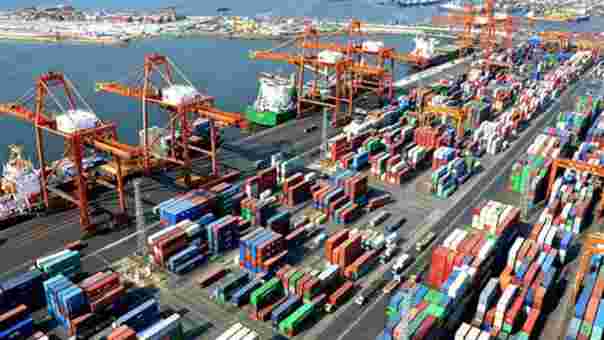Karachi, June 22, 2025 – The Port Qasim Authority (PQA) has released its detailed shipping operations report for Sunday, June 22, 2025, providing a comprehensive overview of vessel movements and cargo handling activities over the past 24 hours.
The report, issued at 0800 hours, aims to assist port users, shipping lines, and logistics operators in planning and managing port-related activities more effectively.
According to the official report, a total of five vessels were scheduled to sail from Port Qasim during the last 24-hour period. Among the outbound ships, M.T High Leader departed after unloading 28,497 metric tons of palm oil, while M.T Twerk completed operations involving the discharge of 57,420 metric tons of motor gasoline (MOGAS). Another tanker, M.T PVT Saturn, handled 12,000 metric tons of palm oil before its scheduled departure. The cargo vessel M.V Norse Ogijima also completed its operations related to the import of steel coils, amounting to 29,518 metric tons. M.V MSC Roberta V, although not carrying manifest cargo in the report, was listed among the vessels that sailed during the period.
Simultaneously, the shipping operations saw the berthing of several new vessels. The LPG tanker M.T Yashar berthed at EVTL with 2,181 metric tons of liquefied petroleum gas. M.V F Charm, carrying 59,196 metric tons of coal, arrived and berthed at PIBT. Additionally, M.T Siya Ram brought in 23,500 metric tons of palm oil and berthed at the LCT terminal. Tanker M.T Pacific Sarah, loaded with 60,354 metric tons of gas oil, was successfully berthed at the FOTCO terminal. The container ship MSC Flosta III also arrived and berthed at QT2-I.
The report reflects smooth and efficient shipping operations at Port Qasim, with a variety of cargoes being handled, including petroleum products, edible oil, coal, steel coils, and LPG. These operations underline the strategic importance of Port Qasim in supporting Pakistan’s trade and energy supply chain.
The continuous issuance of the shipping operations report enables stakeholders to monitor and coordinate import and export activities in real time. PQA officials reiterated their commitment to enhancing port efficiency, safety, and logistics coordination through timely reporting and proactive management of port infrastructure.
